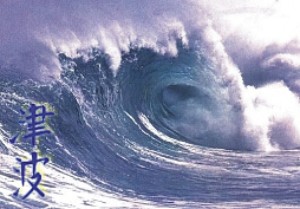Matters Around Us
Tsunami anniversary reminds of the need for anti-disaster measures
Zaglul Ahmed Chowdhury
The pain, sorrow and trauma of nature's one of the most ferocious onslaughts in recent times came back to the mind when the first anniversary of the 'Tsunami' disaster was grimly remembered across the world with homage to huge number of people who perished in the disaster. Several countries of South Asia and South East Asia horrifying experienced the terrible consequences of the catastrophe that brought havoc to lives and belongings in Indonesia and Thailand in South East Asia and India, Sri Lanka and the Maldives in the South Asia. Nearly a quarter of a million people died in the horrific disaster. Mourners gathering along the battered Indian ocean coastlines in a sombre mood highlighting the helplessness of people before the whims of nature stressed the need for combating these disasters as far as possible -- at least minimising the effects in a coordinated high priority basis.The scene is all the more poignant for the South Asia where a devastating earthquake within a difference of less than a year took heavy toll of lives and materials once again to the shock and dismay of the world. This time it was Pakistan and India, whose "Kashmir" region bore the brunt. The tsunami are affected countries, a year after the disaster, still reeling under the effects of the devastation since it will take a long time to put things right in the affected areas. The recent 13th summit conference of the South Asian Association for Regional Cooperation (SAARC) expectedly concentrated on the issues related to natural disaster against the backdrop of catastrophic tsunami and the earthquake that struck several SAARC members in relatively quick succession. The summit felt the need for coordinated efforts and developing ideas and projects to face the onslaughts of calamity in the region which is vulnerable to natural disasters. The tsunami caused serious damages in three South Asian countries, Sri Lanka, India and the Maldives in December 2004 and the 13th SAARC summit had to be rightly called off then because of the tragic development. These two destructive behaviour of nature within a year leaves no one in doubt that this region is prone to the whims of nature and the destruction can be simply staggering. True, it is difficult to contain such disasters, but it is possible to evolve mechanism that can respond quickly to the requirement and minimise the consequences. South Asian nations can also work for the regional platform that can help in various areas of natural disasters although disasters seem a fait accompli for the unfortunate people. It is a matter of common knowledge that South Asia have had enough of the onslaughts of natural disasters. Catastrophic floods, storms, hurricanes, droughts, earthquakes and other menaces caused by the nature are a regular occurrence in this part of the world. Men are largely helpless in such situation, but effective and timely application of science can certainly reduce the consequences of such effects. Early warning system, adequate pre-disaster preparedness and speedy post-occurrence management are some of the measures that can definitely reduce the chances, and more importantly, lessen scale of devastation likely to be wrought by the disaster. It is not that these possibilities are not being thought of or efforts not being made in this line to save the calamity-susceptible nations as far as possible. But what is urgently felt is more serious bid in that direction with utmost priority and placement of resources even if there is constraint on part of the countries desperately needing protection. It appears that such a drive is somewhat lacking even though there is no dearth of anxiety and concern as well as talks of probable steps to mitigate the causes and consequences. Bangladesh is vulnerable to natural disasters and we terribly experienced these catastrophies in 1970, 1984, 1988, 1998 and other occasions. The SAARC summit in Dhaka sometime ago fittingly placed stress on the need for coordinated regional approach and action among the member nations on the disaster related matters and a decision was taken to set up a centre in this connection in New Delhi. Indeed, this has been a decision in the right direction, but what is important is follow-up actions to translate the ideas into reality. Because of the seriousness of the problem and the severity of the calamities, there is hardly any second opinion that anti-disaster programmes must be pursued on the basis of top priority with no slackening whatsoever. Even if the region or for that matter SAARC can afford laxity in other fields, here the situation is totally different. The task is no doubt gigantic, but the need is paramount to be met urgently. The tsunami disaster anniversary reminds all about the inevitable. Zaglul Ahmed Chowdhury is Foreign Editor of BSS.
|

The fury of tsunami |